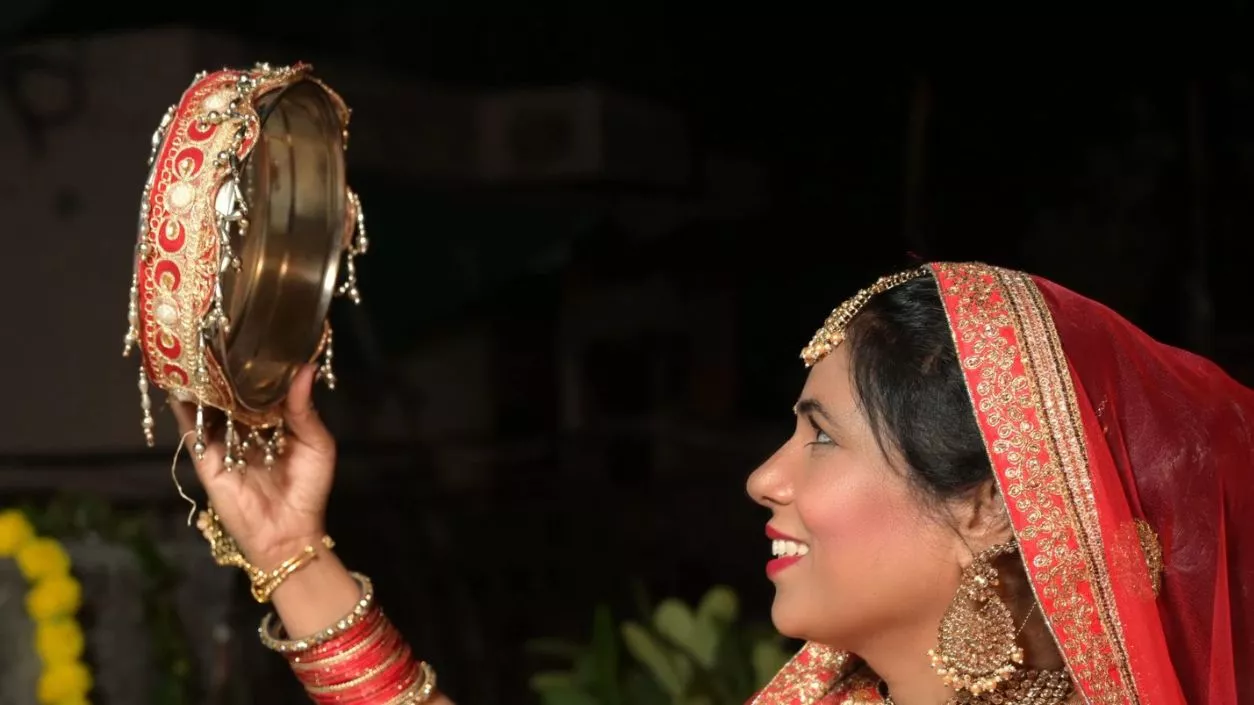.gif)
.gif)

The Karva Chauth festival, which takes place tomorrow, is projected to generate an impressive ₹22,000 crore in business across India, as reported by the Confederation of All India Traders (CAIT). This figure marks a substantial increase from last year's ₹15,000 crore, reflecting the festival's growing economic significance alongside its cultural and religious importance. Karva Chauth is a traditional festival predominantly celebrated by married Hindu women, who observe a day-long fast for the longevity and well-being of their husbands. The ritual involves a series of prayers and the use of specific items, such as Karva pots and traditional thalis, which hold symbolic meanings.
Women adorn themselves in vibrant attire and often engage in rituals that include a special evening prayer, where they view the moon through a sieve before breaking their fast. Member of Parliament Praveen Khandelwal from Delhi's Chandni Chowk emphasized that this year's festivities coincide with Prime Minister Narendra Modi's "Vocal for Local" initiative, which aims to promote the consumption of domestically produced goods. This alignment has further stimulated economic activity, as consumers are encouraged to support local businesses and artisans during this festive period.
In anticipation of the festival, markets nationwide have experienced heightened consumer activity. Shoppers are flocking to buy a variety of items associated with the celebration, including jewelry, ethnic wear, cosmetics, and puja essentials. Popular purchases include red glass bangles, anklets, toe rings, lockets, and intricately designed Karva thalis. This year also marks the debut of silver Karvas in the market, which are expected to be in high demand, adding a modern touch to the traditional celebration.
In Delhi alone, sales are anticipated to reach approximately ₹4,000 crore, which could set new records for the occasion. The bustling markets in the capital reflect not only the enthusiasm of women preparing for the fast but also a notable increase in male participation. More husbands are choosing to observe the fast alongside their wives, indicating a cultural shift in marital relationships and shared responsibilities within households. The popularity of mehendi, or henna, has also surged during this festive season, with artists setting up stalls in prominent locations such as Connaught Place’s Hanuman Temple. Beauty parlors and private sessions are fully booked, providing henna artists with valuable earning opportunities as women seek to adorn their hands with intricate designs considered auspicious for the occasion.
The economic implications of Karva Chauth extend beyond immediate retail sales. As an early indicator of the upcoming wedding season, which begins in November, many consumers are already placing orders for gold jewelry in preparation for future celebrations. The festival's commercial success is seen as a barometer for consumer spending patterns in the months to come, particularly in the context of India’s recovery from economic disruptions caused by the pandemic.
Khandelwal remarked on the changing dynamics within Indian society, stating, "I have had many males observe the fast along with their wives. It indicates that the dynamics of marital relationships in India are shifting." This transformation reflects a broader societal trend towards greater equality and shared participation in traditional practices, suggesting that Karva Chauth is not just a celebration of marital devotion but also a platform for evolving gender roles.